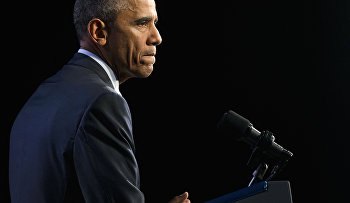Last week the US issued a remarkable comment.
Colonel Steve Warren, in charge of coordinating America's operations against ISIL, said that the United States has never, and will never supply arms to the Kurdish forces who are fighting ISIL in Syria – meaning the “People's Protection Units,” (the YPG). Warren said that the weapons were intended for an Arab coalition consisting of the recently-formed “Democratic Forces Of Syria” — and that in future arms supplies will similarly go to that group. Turkey announced that it welcomes this American stance.
But as I see things, the situation is not quite the way Warren describes it.
It's abundantly clear what America seeks to achieve with this statement. At a time when US troops are using Turkey's Incirlik Air base, the USA has no intention of angering Turkey by saying “Well, we've sent arms to the YPG, and we're going to carry on doing so." But let no-one deny that the United States does all this with superb craftsmanship. While Warren confirms that “we have never, and will never supplied arms to the YPG,” other American officials from the Defense Department continue to issue statements which flatly contradict his words. Not only that – their battlefield reports have parted company from Warren's too.
#Turkey welcomes US statement to not provide arms to #YPG, @cherryontop__ reports https://t.co/EMje2G3Giu pic.twitter.com/JKMGibzPBa
— Hurriyet Daily News (@HDNER) November 5, 2015
Let's put these mixed messages under the spotlight.
Warren announces that “we have never supplied arms to the YPG.” Yet just a month ago the White House announced the delivery of fifty tons of weapons and ordnance “to Syrian Arabs” who are fighting ISIL. Immediately afterwards Pentagon officials, under conditions of anonymity, issued a refutation of the statement in the Washington Post, New York Times, and Bloomberg. The Pentagon officials claimed that the White House's primary aim had been to provide military assistance to the Kurds – and not the Arabs – and that this had, in fact, been carried out. A significant proportion of the weapons and ammunition delivery found its way into Kurdish hands. This was confirmed by the Democratic Union (PYD) party leader Salih Müslim, along with one of YPG's commanders, Sipan Hemo. On top of this, the region where the American arms and ammo were delivered is Kurdish-controlled. This all makes Col Warren's statement that we've “never supplied arms to the YPG” somewhat difficult to believe.
US Col Warren says #FreeSinjar Peshmerga 'accomplished all their planned objectives today. Kurds have unified front' https://t.co/fManRobYsp
— Bayan Sami Rahman (@BayanRahman) November 12, 2015
Now, let's look at how Warren continues. “We have no intention of supplying arms to the YPG in the future, and all the weapons will be going to the Arab coalition.” This, too, seems clouded in doubt. More than anything, if America is sincere in its claims of wanting to take on ISIL, then it cannot afford not to collaborate with the YPG. No-one today says it's realistic to rely solely on the aid of the Arab opposition. At every turn the Pentagon and the White House comment on the exceptional effectiveness of the Kurdish forces against ISIL. Even Warren himself mentioned it in his speech, although he then said “the USA will not supply arms to the YPG.” He noted that the “Democratic Forces of Syria” – who are primarily made-up of Kurds – have scored major successes in the struggle against ISIL. Yet if we take Warren at his word — and conclude that Washington has no plans for collaborating with the YPG — then a huge raft of questions arises.
Why have the US military officials told the Kurds to “create an umbrella organization, which includes the Arabs too, — to dispel the fears of international forces (by which they mean Turkey, and the Arab nations)?” According to the New York Times, once they'd heard this the Kurds went off to form the “Democratic Forces Of Syria” last month – which is primarily a Kurdish operation, but includes some Arabs, Turkmen and Christian groups.

A second question is why America has sent fifty of its troops to northern Syria – and then deployed them in a region which is under Kurdish control? The White House has claimed that the job of these commandos is to train groups who are carrying out the battle with ISIL, and carry out the coordination of arms supplies. Everyone in Washington who is following the Syrian situation is in complete agreement that the fifty commandos are there to support the YPG — and coordinate the delivery of arms deliveries, so that they are supplied directly to the YPG. There's even a rogue theory that these fifty special-forces troops have been deployed to northern Syria specifically to prevent Turkey from bombing the YPG.
And the final question – if the US plans not to collaborate with the YPG, then what is behind the American policy of pressurizing the YPG to steer clear of the Kurdistan Worker's Party (PKK)? Just last week the Head of Intelligence for Iraqi Kurdistan, Lahur Talabani, gave an address at a Washington institute – in the course of which he gave a pledge to America “that the YPG will not interfere in the PKK's war with Turkey.”
This all leads to one inescapable conclusion.
The United States hasn't the slightest intention of ceasing its collaboration with the YPG. It isn't stopping its support for their forces. It's simply trying to make the support less visible, to avoid angering Ankara – and finding a compromise between the YPG and Turkey. The creation of the “Democratic Forces of Syria,” which Warren referred to – and Washington's pressure on the YPG along the lines of “keep away from the PKK” — are simply products of this policy.






